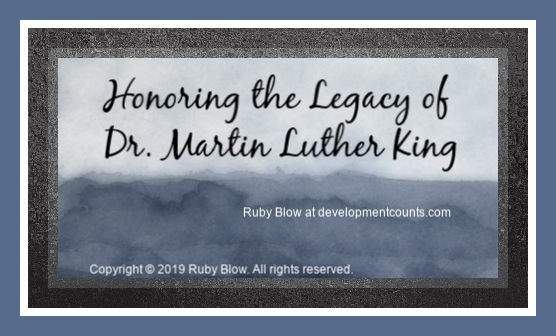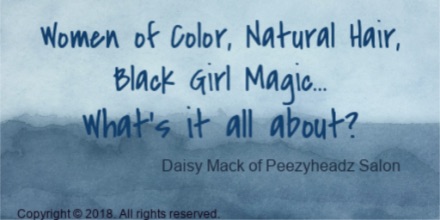#Youvebeeninthebackgroundmuchtoolong
Recently I’ve been using the #hashtag “you’ve been in the background much too long.“ I don’t know how many people recognize this as a song lyric. There is a song called “Black Pearl” by a woman MC/Rapper named Yo-Yo. It was released the year I graduated from high school -1992. Until recently, I did not know that the song itself, including the music and the lyrics that resonate with me, came from the original song which was released in 1969 by Sonny Charles and The Checkmates. What I can state is that the core of that song never left my consciousness.
- That’s how powerful music is.
- That’s how powerful words are.
- That’s how powerful the collective voice is.
Music & Song: A Common Language
This week I had an incredible supervision meeting. One of my supervisees returned from providing trauma counseling to Sudanese refugees. First he told me the story about his journey. It took 3 days to travel from the southeastern U.S. to the refugee camp…which was pretty incredible in and of itself. We discussed the greetings he and the other counselors received when they arrived at the refugee camp (after 33 hours with no sleep).
They were greeted by singing, dancing and smiling faces. The translator had not arrived. The only common language they had were the expressions on their faces and the joy in their voices as they welcomed them to the camp by singing songs.
Spreading the Word
Some of the songs that the Sundanese refugees sang were Christian. We began to discuss how they began to learn about Christianity. It was apparent to me that they must have had their indigenous religious beliefs. He went on to describe how for many of them, their only source for food and clothing had been Christian missionaries. The missionaries would come and convert whoever they could and then they would spread Christianity alongside the much-needed supplies.
The more that the refugees believed and expressed their love of Jesus in their embrace of Christianity, the more support they received from the missionaries. While on one hand, I recognized that the Christian missionaries were providing what is needed for survival; it also struck me that in order to survive the refugees had to bury aspects of themselves and their pre-existing culture (including their indigenous religion and spirituality).
Survival Has a Familiar Face
As I was listening to my Supervisee talk, I began to realize that there were so many parallels between the refugees that he went to visit and the African descendants of slavery here in the United States of America. It made me think about all the things that we’ve had to do for survival. And it also made me think about all the things we still do for survival.
He talked about witnessing the women leaving and returning from 2 mile walks to the nearest well, carrying huge drums that held many gallons of water. At one point he joined them on their journey and saw how the women would pump the water into the drums and hoist the drums over their heads (setting the drums on top) and then walk miles back to the camp. He said this happened 15 times during the course of a day.
The women did all this work while having babies strapped to their backs. He said the temperature was in the 90’s which was winter for them and that some of them wore jackets because they were cold. He described every bit of that journey with them to be arduous for him, but that for the women it was just a normal part of their day.
This reminded me of the articles and research I’ve been reading about health disparities and black women’s wellness, marriage and a few other topics that point to the hidden epidemic of stress in women’s lives…and black women’s lives specifically.
Trauma & A Woman’s Worth
Next, he began to tell me about some of the trauma that the people he met experienced, specifically the trauma that some of the women experienced as a result of war in Sudan. Two of the women had been roommates in the camp. They both experienced the same brutality and did not know about it until the trauma workers facilitated an activity.
Both women had rebels enter their homes and kill the other adult members of their family and the children in their family. Then they were kept alive for the sole purpose of being repeatedly raped and tortured. In a sense, they were only kept alive because they were already perceived as having no value. Thus, there is no purpose in their death. There was already a pre-existing and deeply held belief that these women’s lives had no value other than to be used.
No Rest for the Weary
350 of the refugee camp leaders, including men and women, participated in the trauma work training. During the lunch break my Supervisee noticed that the women prepared lunch, made plates for all the men, and served lunch while the men continued to talk and fellowship with one another.
My Supervisee spoke with one of the women who he thought had been particularly skilled in learning the techniques they were teaching. He asked her to take a break. He told her “you’ve worked really hard and we’ve got more work to do this afternoon.” She just looked at him in disbelief and went back to the kitchen. He also described how he continuously said “Thank you” to the women were serving him and the other men. The men around him continued to talk. He said that they didn’t even look up to acknowledge the women when the plates were being served. My Supervisee said that the whole time he was there, he did not witness any man from the refugee camp do any work of any kind. That includes interacting with the children. All of the women did all of the work all the time.
Women Around the World
While black women in America, like all women in America, have a lot more freedom and experience many more opportunities for equal treatment. It remains clear that there is a continues to be a problem with the unequal treatment of women all throughout the world. I happen to be describing the Sudanese refugees on the continent of Africa. But we could be talking about:
- Women who are just gaining the right to drive a car.
- Women and girls with no access to education.
- Women who can’t hold certain political offices or jobs.
- Places where girls and women are so devalued that a generation of them were either aborted or given up to foreign countries for adoption. Which created a shortage of women in the population.
Varying inequities happen to women and girls all around the world.
Humanity
Hearing the stories of these woman and men reminded me of the civil war/genocide that occurred in Rwanda. It made me think about how thin the line is that people cross to go from citizen/neighbor to aggressor. We discussed what my Supervisee witnessed in Sudan – that women’s lives were being lived fully in service to men and in service of children. It was clear to me that humanity itself hinged on the treatment of women. The massive inequality resulted in a devaluation of all life itself. Not just there but anywhere that we find it.
Women’s ways of being are often devalued qualities:
- nurturing and emotional intelligence;
- the ability to connect and care;
- our generosity and empathy.
If we lived in a world where all of our ways of being are valued, then I have no doubt that we would see an end to barbaric wars and civil, tribal and international exploits that lead to the decimation of all within a community men, women, boys and girls. Unless we, as women, abandon our innate strengths in an attempt to rid ourselves of what is viewed as weak or illogical.
The Story…The Song of Yourself
I began to share with my Supervisee a story that I didn’t know well enough to get right. But because of how truly amazing he is, he already knew the story and was able to tell it to me. The story is about an African tribe in which a woman who is ready to conceive a child goes to sit under a tree to listen for a song. The song will be that child’s song. When this song comes to the woman, she learns it and teaches it to her lover/mate. Once he learns the song, they go and teach it to their tribe.
When the couple is conceiving the child they sing child’s song. When the child is born the tribe gathers around and sings that song. As the child grows up, if at any time they should lose their way, the whole tribe gathers and sings their song to them…to bring them back to themselves.
One of the beautiful moments that my Supervisee shared with me about his journey and about the experiential trauma work that he did with the refugees was a moment when one of the guest counselors openly expressed how angry they were about all the drama that the refugees had suffered. She began to weep and wail openly and loudly front of everyone. So they all began to release and cry and yell and let out all of their held in pain.
Then somehow, as if it were planned, they all began to sing one of their ancestral spiritual songs. Not the songs that were taught to them by the Christian missionaries, but the songs that based on the culture would lead them back to themselves.
Black Pearl
There are many more parallels that I saw between the women of Sudan and the black women I know. Perhaps I’ll write more about that another time. What I will say is that a song that I relate to as acknowledging my own experiences and that of many others goes in part like this – “black pearl precious little girl, let me lift you up where you belong, black girl precious little pearl…. you’ve been in the background much too long.”
Copyright © 2018 Ruby Blow. All rights reserved.
Share your thoughts on Linkedin, Facebook, Twitter or log in to one of your accounts below to comment. Subscribe to my YouTube channel.





